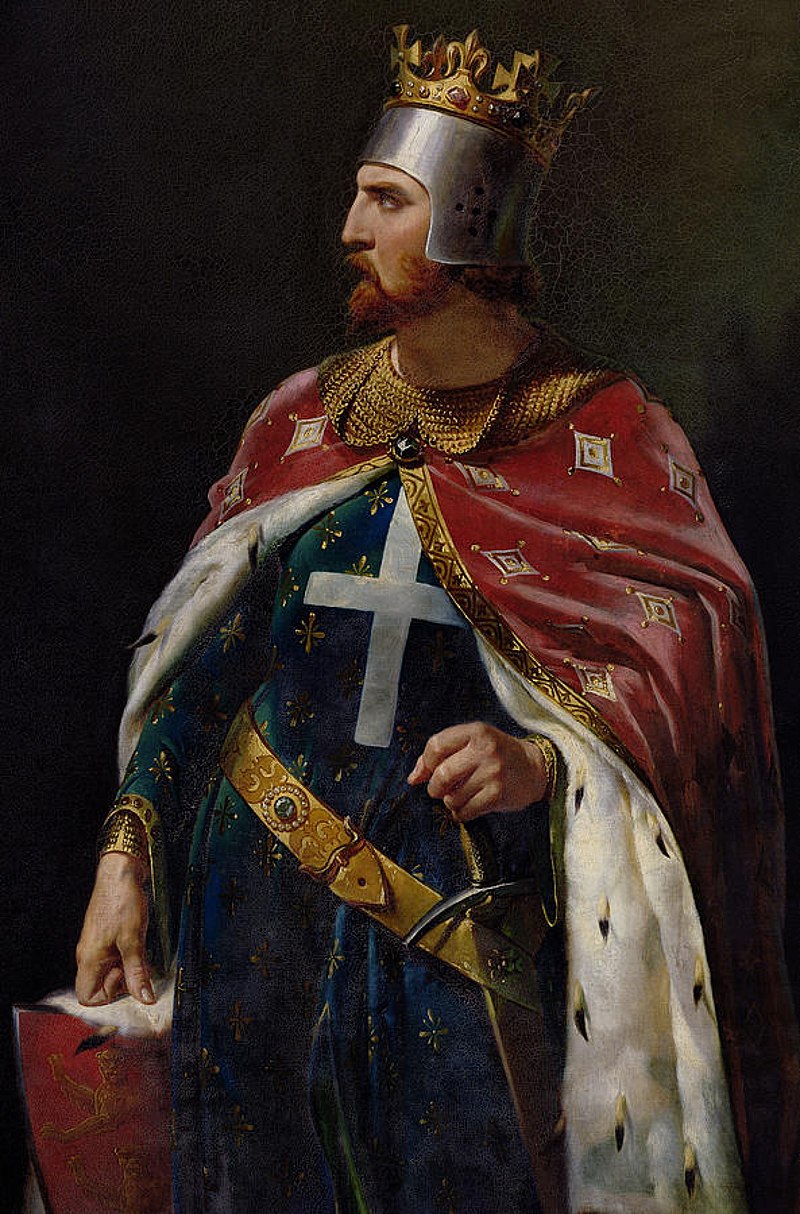An unworthy death for a great knight
The assassination of King Richard the Lionheart

Richard I of England in a portrait from 1841 - Wikipedia
Richard I of England (1157–1199) is undoubtedly one of the most famous kings in history. However, it must be said that Richard had very little to do with England. Despite being born in Oxford, he did not speak the language and spent only one year in England during his ten-year reign (1189–1199). He preferred to remain in France, particularly in Aquitaine (his mother’s land) and Normandy, where he also held titles as Count and Duke.
Richard’s interest in England was primarily financial, as he collected sums from his kingdom to fund his continuous military campaigns. These prolonged absences left his subjects impoverished and resentful. Richard’s positive legacy as a ruler is due in part to the even more disastrous policies of his successor, John “Lackland,” and the romanticized tales of Robin Hood. While Richard I was far from an exemplary king, he was widely admired as a formidable knight and military leader.
After returning from the Crusades, Richard resumed his war against Philip Augustus of France, who had seized English territories during his absence. Victories on French soil forced Philip to sue for peace in 1199. On his way back to England, Richard turned his attention to quelling rebellious barons and besieged Châlus-Chabrol Castle, which was poorly defended and housed a great treasure. Confident of an easy victory, Richard approached the castle without chainmail, directing the siege and taunting the defenders. An elderly crossbowman struck him in the neck with a bolt.
Richard, known as "Lionheart," downplayed the injury and calmly sat with his soldiers near the walls. He later struggled through the painful removal of the arrow by a surgeon in his tent. However, the wound quickly became infected with gangrene, leading to his death days later. On his deathbed, Richard held a farewell banquet and summoned the crossbowman, rewarding him with 100 coins and granting him freedom for his "feat."
Years of crusades, wars, and battles had not claimed Richard the Lionheart; instead, he met his end due to overconfidence and recklessness in what should have been an assured victory. It was, in many ways, a “ridiculous” death for the greatest warrior of his time.
Jean Flori, Riccardo Cuor di Leone. Il re cavaliere, Einaudi, Turin, 2002
2025-05-20
Salvatore Ciccarello
